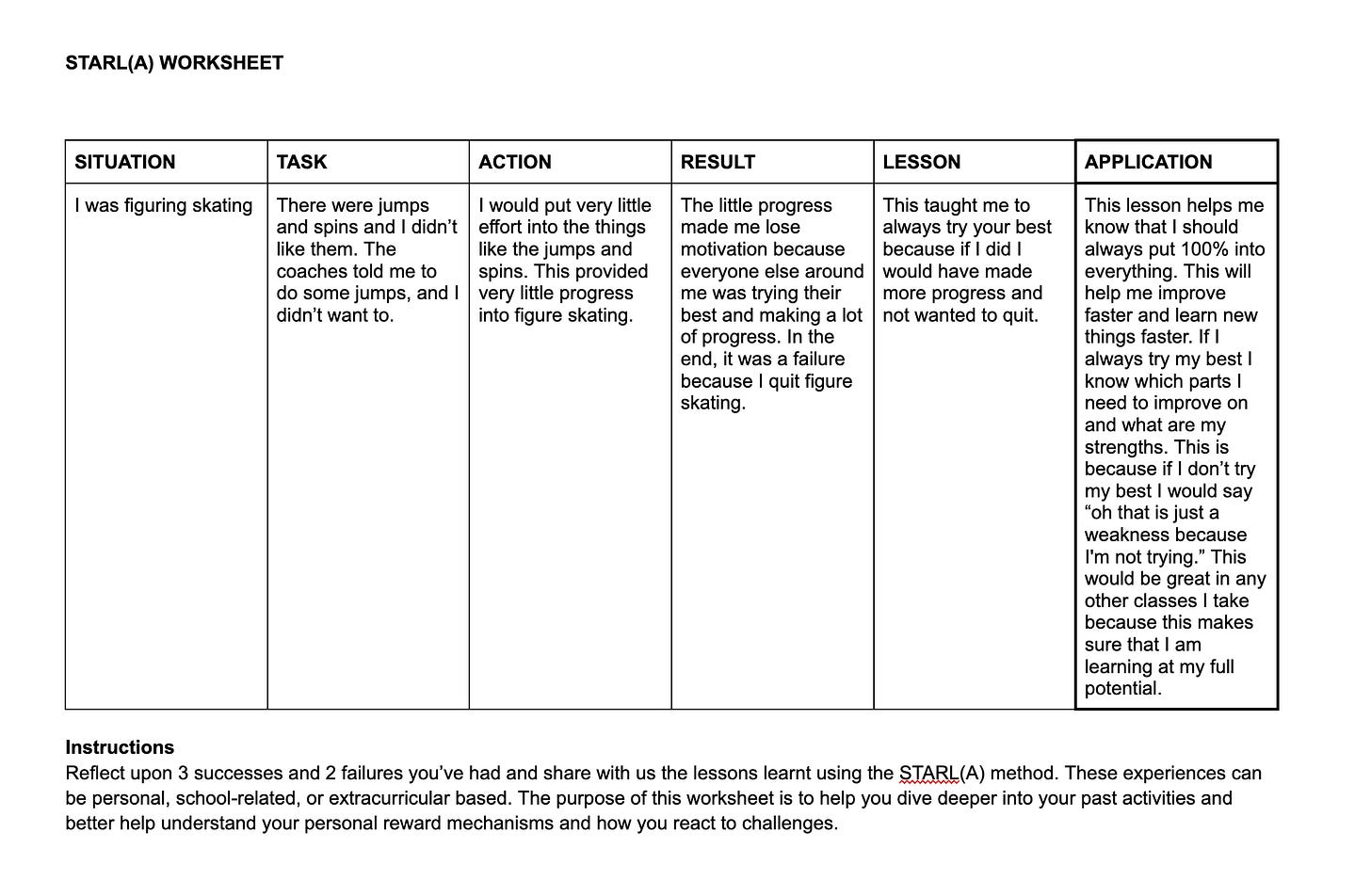- The Impact Journal
- Posts
- Grades Aren’t Everything: Free Resource to Combat Academic Inflation
Grades Aren’t Everything: Free Resource to Combat Academic Inflation
Good grades are no longer a differentiator; they're the baseline requirement.


Nearly everyone seems to have a 4.0 GPA.
Good grades are no longer a differentiator; they’re the baseline requirement.
This is an uncomfortable and stressful realization for many students and it leaves them wondering how they can truly stand out.
It’s easy to chase after the flashiest extracurriculars, participate in math contests, or run major Model UN conferences.
However, the real key to standing out isn’t about stacking up accomplishments – it’s about crafting and owning your unique story.
What Is Your Story?
Your story is the unique combination of personal experiences, activities, and accomplishments that define who you are. This thread is the core of you and what you want to become.
To uncover your story, start by listing all the activities and social issues you’re passionate about. Do not select certain activities over the other – even your smallest hobbies can become inspiration for a bigger idea.
Next to each one, write down a moment that made this activity or issue meaningful to you.
This exercise helps you identify the experiences that genuinely matter to you. With these experiences, you can form the foundation of your unique narrative.
Ask Yourself “Why?”
Now with this list, ask yourself “why.” For example, say you have been volunteering at a senior’s home for a while. Why do you like volunteering there? What makes you sit on an hour's ride of transit and show up to the senior’s home every week?
If you ask yourself “why” three times and still feel a strong connection to the activity, it truly matters to you and is a significant part of your story. To really hone in, write down a specific anecdote or interaction that made a large impact on you - for example, if you’ve cared for a grandparent growing up, or if one conversation with a senior you’ve helped stands out to you.
These small anecdotes can be used as inspiration for whichever project idea, organization or initiative you want to try moving forwards. It will make your interest & drive for this initiative that much stronger.
Is Your Story Unique and Compelling?

Whichever direction you’d like to take a potential initiative or project, ask yourself: could someone else tell the same story? If the answer is yes, then it’s not specific enough.
Turn back to your specific anecdotes and experiences that have shaped who you are today. A compelling story isn’t just about the activities you’ve done but about the personal growth and insights you’ve gained through these experiences.
A big mistake for students is to think their story isn’t “big enough” to use - but truth be told, it’s the small instances that differentiate you and demonstrate the authenticity of your experience.
Standing Out
Remember that standing out isn’t about having the most impressive resume; it’s about authenticity. An initiative that you organize that is genuinely rooted from a personal experience will be so much more memorable to you and those around you. Constantly ask yourself “why.” By being true to yourself and pursuing initiatives which genuinely matter to you, you’ll naturally stand out in a sea of students with perfect grades.
Framework & Exercise: STARL(A)

To begin taking a deeper dive into your past activities and help you start thinking about your “why,” it’s helpful for you to reflect on your current successes/failures to better understand your strengths and how you react to challenges. We use the STARL(A) method. Looking at your list of activities, think about a specific experience. Then, answer the following questions in order:
Definitions
Situation - What activity were you involved in?
Task - What was the goal/challenge and what were you specifically asked to do or accomplish?
Action - What were some specific actions or steps you took to accomplish the task?
Result - What was the outcome? Was it a success or failure?
Lesson - Upon reflection, what did you learn from this experience?
Application (Bonus) - How can the lessons learnt be applied to your future activities?
This is only the first step to break down your “why.” Know that it will have to be a consistent evaluation and practice as you dissect your activities and why you do them over others.